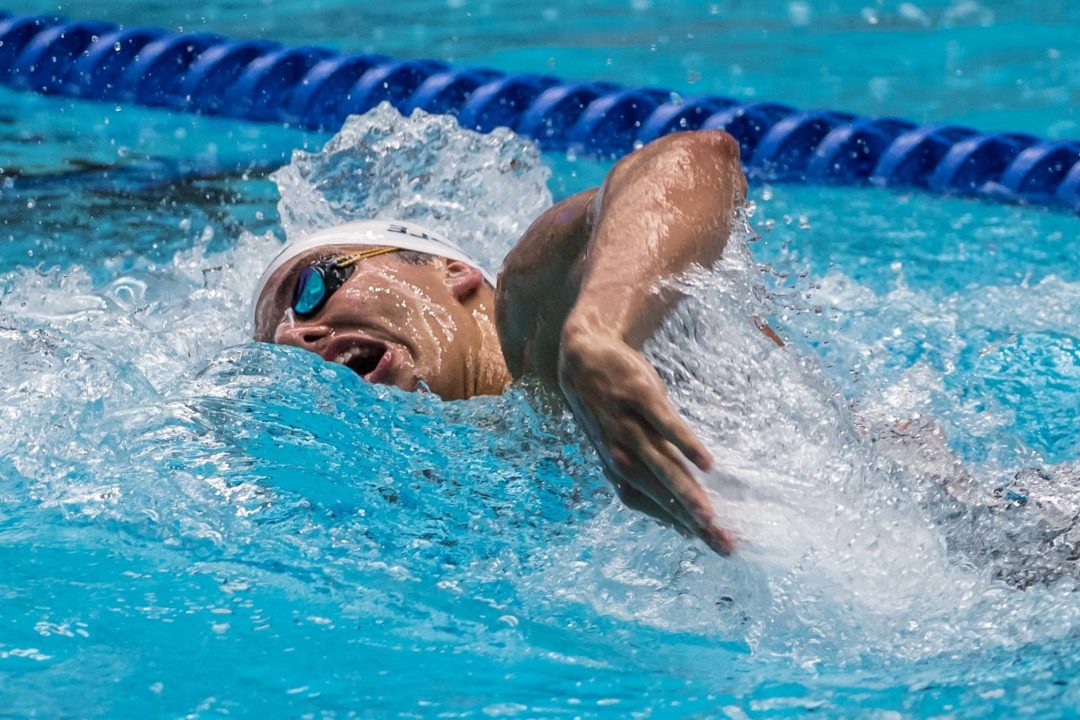You step up to the block, the deck is loud with the noise of cheering for the heat ahead. You block it all out by focusing on your breathing. In and out. For most sports, breathing is not really something you have to think about. You guys know though that breathing, or the lack thereof, plays a huge role in swimming. From breathing patterns, to hypoxic sets, to the air quality on deck, breathing can be a complicated and challenging thing. Let’s take a deep breath and dive into the deep end on the different facets of breathing…
Breathing Patterns: When swimming Freestyle are you going to breathe every 3 or every 5? How about every 2? On the 50 are you going to take no breaths? One breath? As a sprint Freestyler, I played with breathing on the 50 and the 100 quite a lot. I even did some research, (aka watched a lot of race videos) on some of the fastest sprint freestylers in the world to try and help me figure out what seemed to be the best. Unfortunately I didn’t find a one size fits all solution, so it comes down to playing around with what works best for you. Butterflyers get to play with breathing patterns too. Is it gonna be one up one down? Two up one down? Are you breathing to the front or to the side? The possibilities are endless! Backstrokers and breaststrokers get a little bit of a reprieve here on the breathing pattern front.
Not Breathing In/Out of the Wall: I can’t tell you how many times I’ve heard in my life “don’t breathe the last stroke into a turn or the first stroke out of a turn”. I used to hate that! As I got older, I stopped breathing in/out of the turn and didn’t hear it as much… until I coached a summer league team. Then, I found that I was the one telling kids not to breathe into the wall! Oh how the tables had turned.
Hypoxic Sets: No breather 25s where you can only take 5 breaths on the wall before doing the next one. Underwater streamline kicks. 50s going 0 breaths down 1 breath back. I can feel myself taking deep slow breaths as I type this as if I’m about to push off the wall for a no breather set. The trick in a set like this is not talking on the wall. I’m sure most of y’all already know this, but it is key to quite literally save your breath. Also, nothing makes a hypoxic set worse than hearing the song “Breathin” by Ariana Grande or “No Air” by Jordin Sparks come over the speakers. This has happened to me on more than one occasion, and I just have a hard time believing it was a coincidence.
Bad Air Quality: Some pools are hard to breathe in 24/7. Some get bad at the end of a long meet. This is always rough because there really isn’t much you can do about it. My inhaler would live in my parka pocket during these long meets. One year during Nationals, a lot of teams were staying at the same hotel that my team was. The air quality got so bad at the meet that you could hear people across the hotel coughing. I wouldn’t wish that on anyone. Maybe one day someone can figure out how to make the air quality not an issue in pools.
Let’s go back to that moment on the block. Your focus on your breathing drowns out the noise on the deck around you. You’ve gone through the hypoxic sets and nailed down your breathing pattern. You’ve put in the work everyday at practice to make breathing a natural part of the race. You take a deep breath, and dive in.

I wonder how fast swimmers could go if they had oxygen tanks strapped to their backs. Of course, engineered in a way that makes the tanks lighter than something an astronaut uses.
They do this in those meets where they race with fins.